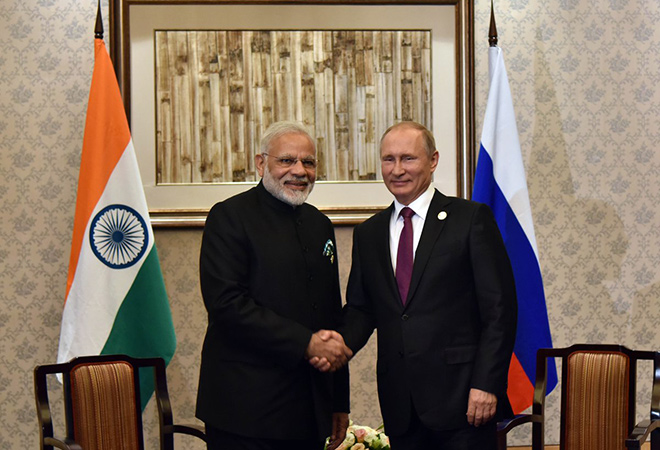Author: Aruuke Uran Kyzy
Affiliation: TRT World Research Centre
Organization/Publisher: TRT World Research Centre
Date/Place: March 17, 2021/Istanbul, Turkey
Type of Literature: Discussion Paper
Word Count: 13093
Keywords: India, Russia, Trade, COVID-19, Nuclear Energy, Military
Brief:
Russia and India have historically been good allies since India allied itself with the Soviet Union in the 1950’s. In what India’s first Prime Minister Jawaharlal Nehru (1947-1964) deemed a diversification of economic ties and an attempt to ween off from the West, India reached out to the Soviet Union. The Soviet Union in return recognized India’s claim on Jammu and Kashmir and on some Portuguese coastal enclaves. The 1971 Treaty of Peace, Friendship and Cooperation between the Soviet Union and the Republic of India, and the 1993 Treaty of Friendship and Cooperation are hallmarks of this relationship; more than 250 bilateral agreements have been signed under them. In accordance with their Strategic Partnership Declaration in the 2000’s, the Russian and Indian prime ministers meet every year to discuss security concerns. India has supported the Russian annexation of Crimea and has been duly rewarded with Russian support for permanent membership on the UN Security Council, joining the Nuclear Suppliers’ Group and cooperation with the Eurasian Economic Union. Trade between the two countries is $10.5 billion with a goal of $30 billion by 2025. The oil and gas sector is particularly vital to this with Russia supplying 10% of India’s current gas imports and 5% of its oil imports. Russia has been closely involved in developing India’s nuclear technology and transportation infrastructure. The planned International Transport Corridor (North-South) will reduce the transportation time from Mumbai to St. Petersburg to three weeks. India is a potential ‘technological superpower’, and Russian firms are willing to invest in this sector. In the military arena, India is the second largest buyer of Russian arms. Both countries hold regular joint military drills. This is complemented by cooperation in space technology as well. In 2020, the Reciprocal Exchange of Logistics Treaty was signed giving each other access to their military bases. During the pandemic, Russia’s Sputnik V vaccine has been rolled out in India while India provided 13 million tablets of hydroxychloroquine. The Indo-Russian partnership is evidently evolving from a traditional cooperation to something more suitable to the times.
By: Sahar Sadiq, CIGA Research Intern




